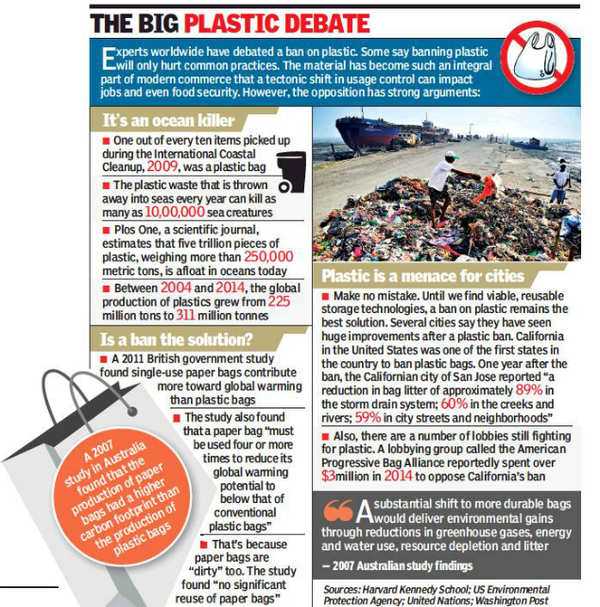
In recent years, there has been an increasing global concern over the environmental impacts of plastic bags. As a response to this concern, many countries and cities around the world have implemented or are considering implementing bans on plastic bags. This has sparked a heated debate among policymakers, environmentalists, and the general public about the effectiveness of such bans and their potential consequences.
On one hand, supporters of the plastic bag bans argue that they are a crucial step towards reducing plastic pollution and protecting the environment. Plastic bags are known to take hundreds of years to decompose, littering our oceans, landfills, and harming wildlife in the process. By banning these bags, proponents believe that we can encourage individuals to switch to reusable alternatives, such as cloth or paper bags, which are more sustainable in the long run.
However, opponents of the bans argue that they are not effective in addressing the root causes of plastic pollution. They argue that banning plastic bags may simply lead to a shift towards using other types of single-use plastics, such as thicker plastic bags or disposable containers. Furthermore, they claim that the economic consequences of banning plastic bags, such as job losses in the plastic bag industry, should not be ignored.
Ultimately, the impact of banning plastic bags on the debate remains uncertain. While the bans have the potential to raise awareness about plastic pollution and prompt individuals to adopt more sustainable practices, it is important to consider the wider implications and unintended consequences of such policies. Only through informed and balanced discussions can we determine the most effective strategies to tackle plastic pollution and protect our planet for future generations.
- The Environmental Consequences of Plastic Bags
- Alternatives to Plastic Bags
- Reusable Cloth Bags
- Paper Bags
- The Economic Impact of Banning Plastic Bags
- Public Opinion on Banning Plastic Bags
- Advocates for Banning Plastic Bags
- Opponents of Banning Plastic Bags
- The Role of Government in the Plastic Bag Debate
- Lessons from Countries that Have Banned Plastic Bags
- Questions and answers:
- What is the current debate surrounding plastic bags?
- What are some potential impacts of banning plastic bags?
- How do proponents of banning plastic bags argue their case?
- What are some counterarguments to banning plastic bags?
- How might businesses and consumers be affected by a plastic bag ban?
- What is the main argument against banning plastic bags?
- How would banning plastic bags impact the environment?
The Environmental Consequences of Plastic Bags
Plastic bags have become a significant environmental issue in recent years. Here are some of the key consequences of widespread plastic bag use:
- Resource Depletion: Producing plastic bags requires the extraction of crude oil and natural gas, both of which are non-renewable resources. With the global demand for plastic bags increasing, this puts additional strain on our already limited resources.
- Landfill Waste: Plastic bags are not biodegradable and can sit in landfills for hundreds of years. As a result, they contribute to the ever-growing volume of waste that takes up valuable space and releases harmful greenhouse gases into the atmosphere.
- Marine Pollution: Plastic bags are a major source of marine pollution. When not disposed of properly, they often end up in rivers and eventually make their way into the ocean. Once in the water, they pose a significant threat to marine life. Sea turtles, whales, and other marine animals often mistake plastic bags for food and can suffer from internal injuries or even death as a result.
- Microplastic Pollution: Plastic bags break down into smaller and smaller pieces over time, eventually becoming microplastics. These tiny particles are often ingested by marine animals and can enter the food chain, potentially reaching humans. The long-term consequences of microplastic pollution on our ecosystems and health are still being researched, but early studies indicate potential risks.
- Carbon Footprint: The production, transportation, and disposal of plastic bags contribute to greenhouse gas emissions, exacerbating climate change. By reducing our reliance on plastic bags, we can help mitigate the environmental impact of this carbon footprint.
The environmental consequences of plastic bag usage are significant and far-reaching. Banning plastic bags is a crucial step toward a more sustainable future, where we prioritize the well-being of our planet and future generations.
Alternatives to Plastic Bags
While banning plastic bags may be an effective way to reduce the environmental impact of single-use plastic, it is also important to consider the alternatives that are available. There are several options that can serve as substitutes for plastic bags and help to minimize waste and pollution.
Reusable Cloth Bags
One popular alternative to plastic bags is the use of reusable cloth bags. These bags are made from durable materials such as cotton or canvas and can be used countless times. They are available in various sizes and designs, making them a versatile and eco-friendly choice. Many stores now offer reusable cloth bags for sale, or customers can bring their own from home.
Benefits of reusable cloth bags:
- Reduced waste: Reusable cloth bags eliminate the need for single-use plastic bags, reducing the amount of waste that ends up in landfills.
- Durability: Cloth bags can withstand heavy loads and are less likely to tear or break compared to plastic bags.
- Convenience: Reusable cloth bags can be easily folded and carried in a pocket or purse, making them convenient for impromptu shopping trips.
Paper Bags

Another alternative to plastic bags is the use of paper bags. While paper bags are not as durable or long-lasting as cloth bags, they are biodegradable and can be recycled. Many grocery stores and retailers offer paper bags as an option at checkout.
Benefits of paper bags:
- Biodegradable: Paper bags decompose much faster than plastic bags, reducing their impact on the environment.
- Recyclable: Paper bags can be easily recycled, further reducing their environmental footprint.
- Natural material: Paper bags are made from renewable resources and do not contribute to plastic pollution.
It is important to note that while reusable cloth bags and paper bags are better alternatives to plastic bags, they still have their own environmental impact. For example, the production of cloth bags requires resources such as water and energy, and the production of paper bags involves cutting down trees. Therefore, it is crucial to choose and use alternatives responsibly and consider the overall lifecycle impact.
In conclusion, while the banning of plastic bags can positively impact the debate on plastic pollution, it is equally important to explore and promote alternatives such as reusable cloth bags and paper bags. By making conscious choices and embracing sustainable options, we can collectively work towards a greener future and reduce the harm caused by plastic waste.
The Economic Impact of Banning Plastic Bags
Banning plastic bags can have a significant economic impact on both businesses and consumers. While there may be initial costs associated with transitioning to more sustainable alternatives, the long-term effects can be beneficial for the economy as a whole.
One of the main economic benefits of banning plastic bags is the reduction in environmental damage. Plastic bags are a major contributor to pollution, especially in oceans and landfills. By banning these bags, businesses and governments can save on cleanup costs and prevent harm to ecosystems. This can lead to increased tourism and recreation opportunities, benefiting local economies.
Additionally, banning plastic bags can create opportunities for businesses that produce and sell reusable bags. This can stimulate innovation and entrepreneurship, resulting in job creation and economic growth. By replacing single-use bags with reusable ones, consumers are more likely to make multiple purchases of durable bags, providing a boost to the manufacturing sector.
It is also important to consider the long-term cost savings associated with banning plastic bags. While it may be cheaper initially to produce plastic bags, the environmental and social costs outweigh these savings. By transitioning to more sustainable options, businesses can save on disposal fees and reduce the need for raw materials. This can lead to cost savings in the long run.
However, it is crucial to acknowledge that banning plastic bags may have short-term economic impacts on certain industries, such as plastic bag manufacturers and retailers who rely heavily on bags for packaging. These industries may need to adapt their business models and explore alternative options to remain competitive.
In conclusion, while there may be some short-term economic challenges, there are numerous long-term economic benefits associated with banning plastic bags. The reduced environmental damage, job creation, cost savings, and innovation can contribute to a more sustainable and prosperous economy.
Public Opinion on Banning Plastic Bags
The debate surrounding the banning of plastic bags has generated a wide range of opinions among the public. While some individuals believe that banning plastic bags is necessary to protect the environment and promote sustainable solutions, others argue that it is unnecessary and could have negative consequences.
Advocates for Banning Plastic Bags
Those in favor of banning plastic bags argue that they contribute to pollution and harm wildlife. Plastic bags are made from non-renewable resources and often end up in landfills or as litter in oceans and other natural habitats. This poses a significant threat to marine life, as animals can mistake plastic bags for food or become entangled in them.
Additionally, advocates argue that banning plastic bags would encourage the use of more sustainable alternatives. Many communities have implemented bans or fees on plastic bags, leading to an increase in the use of reusable bags or biodegradable alternatives. This shift promotes a culture of environmental consciousness and reduces reliance on single-use plastics.
Opponents of Banning Plastic Bags
On the other hand, opponents of banning plastic bags suggest that it may not be the most effective solution to address environmental concerns. They argue that the resources required to produce alternative bags, such as paper or cloth, can have their own negative impacts. For example, the production of paper bags contributes to deforestation, while fabric bags require significant energy and water in production.
Furthermore, opponents of the ban claim that plastic bags are a convenient and cost-effective option for consumers. They argue that banning plastic bags could lead to increased costs for businesses and consumers, as alternative bags may be more expensive. Additionally, they suggest that the ban could disproportionately affect low-income communities who rely on plastic bags for their affordability and ease of use.
Overall, public opinion on banning plastic bags remains divided. While some see it as a necessary step towards reducing plastic pollution and promoting sustainable practices, others question its effectiveness and potential negative consequences. As the debate continues, it is essential to consider multiple perspectives and explore alternative solutions to address our environmental challenges.
The Role of Government in the Plastic Bag Debate
The plastic bag debate has attracted significant attention in recent years, with many individuals and organizations advocating for the banning of single-use plastic bags due to their detrimental environmental impact. However, the question remains: what role should the government play in this debate?
Government involvement is crucial in addressing the plastic bag issue as it can provide the necessary regulations and policies to enforce change. By implementing a ban on plastic bags, governments can lead the way in promoting more sustainable alternatives and encouraging responsible consumer behavior.
One of the main roles of government in the plastic bag debate is to educate the public about the environmental consequences of plastic bag usage. Through public awareness campaigns and educational initiatives, governments can inform citizens about the detrimental effects of plastic bags on ecosystems, wildlife, and human health. This knowledge can inspire individuals to choose reusable alternatives and reduce their reliance on plastic bags.
Furthermore, the government can play a crucial role in facilitating the transition to more sustainable alternatives. By supporting the development and implementation of eco-friendly alternatives such as paper bags, reusable totes, or biodegradable bags, the government can create a market for these alternatives and incentivize their adoption by retailers and consumers.
Government regulations can also ensure the proper disposal and recycling of plastic bags. By mandating the availability of recycling facilities and establishing strict guidelines for the disposal of plastic bags, governments can prevent them from ending up in landfills or polluting oceans and waterways. Additionally, government policies can encourage the transition to a circular economy, where plastic bags are recycled and used as raw materials for new products, reducing waste and promoting sustainability.
However, it is essential for governments to carefully consider the economic impact of plastic bag bans. Some argue that banning plastic bags could lead to job losses in the manufacturing and retail sectors. Governments must implement strategies and support programs to mitigate these economic repercussions and ensure a smooth transition for affected workers and industries.
In conclusion, the role of government in the plastic bag debate is crucial. Governments have the power to educate the public, regulate the industry, and promote sustainable alternatives. By taking an active role in the debate, governments can contribute to reducing plastic waste and creating a more sustainable future.
Lessons from Countries that Have Banned Plastic Bags

As the debate over plastic bag bans continues, it can be instructive to look at other countries that have already implemented such policies. By examining the experiences of these nations, we can gain insights into the potential impacts and challenges that may arise from banning plastic bags.
One country that has successfully banned plastic bags is Rwanda. In 2008, Rwanda became one of the first countries in the world to prohibit the use of plastic bags. Since then, the country has seen a significant reduction in plastic waste, resulting in cleaner streets and a healthier environment. Rwanda’s success can be attributed to its strict enforcement of the ban and the implementation of alternative packaging options.
Another example is Kenya, which introduced a ban on plastic bags in 2017. The Kenyan government took a strong stance on the issue, imposing heavy fines and even imprisonment for those found manufacturing, selling, or using plastic bags. This strict enforcement has helped to reduce plastic bag usage and promote the use of reusable alternatives.
In Europe, countries like Ireland and Denmark have also implemented successful plastic bag bans. In Ireland, a plastic bag levy was introduced in 2002, resulting in a 90% decrease in plastic bag usage. Denmark, on the other hand, introduced a ban on lightweight plastic bags in 1993, which led to a significant decrease in plastic waste.
While these examples demonstrate the potential benefits of banning plastic bags, they also highlight some challenges that may arise. One common concern is the potential increase in the use of paper bags, which can have their own environmental impact. It is important for policymakers to consider the full life cycle of different packaging options and encourage the use of reusable bags instead.
Furthermore, it is crucial to ensure that the ban is enforced effectively and that alternatives to plastic bags are widely available and affordable. Education campaigns can also play a key role in raising awareness about the negative impacts of plastic bags and promoting sustainable alternatives.
In conclusion, the experiences of countries that have banned plastic bags offer valuable lessons for the ongoing debate. By implementing strict bans, promoting alternative packaging options, and raising awareness, it is possible to reduce plastic waste and create a cleaner, more sustainable future.
Questions and answers:
What is the current debate surrounding plastic bags?
The current debate surrounding plastic bags focuses on whether they should be banned or not. Proponents of banning plastic bags argue that they are harmful to the environment and contribute to pollution, while opponents argue that they are a convenient and practical option for consumers.
What are some potential impacts of banning plastic bags?
Banning plastic bags could lead to a decrease in plastic pollution and a reduction in the harm caused to marine life. It could also encourage the use of reusable bags and promote more sustainable alternatives. However, it may also pose challenges for businesses and consumers who rely on plastic bags for various purposes.
How do proponents of banning plastic bags argue their case?
Proponents of banning plastic bags argue that they are a major source of pollution and harm to wildlife. They point out that plastic bags take hundreds of years to decompose, and often end up in our oceans, where they pose a threat to marine life. Additionally, they argue that there are plenty of reusable and more sustainable alternatives available.
What are some counterarguments to banning plastic bags?
Opponents argue that plastic bags are a practical option for consumers, providing convenience and ease of use. They also claim that banning plastic bags could lead to unintended consequences, such as an increase in the use of paper or thicker plastic bags that have a greater environmental impact. Furthermore, they argue that education and recycling initiatives could be more effective than an outright ban.
How might businesses and consumers be affected by a plastic bag ban?
A plastic bag ban could have various impacts on businesses and consumers. Retailers might need to find alternative packaging options and potentially bear additional costs. Consumers might need to adjust their shopping habits and remember to bring reusable bags with them. Overall, the impact would depend on the specific measures taken and how well they are implemented.
What is the main argument against banning plastic bags?
One of the main arguments against banning plastic bags is that it could inconvenience consumers who rely on them for various purposes, such as carrying groceries or lining trash bins.
How would banning plastic bags impact the environment?
Banning plastic bags would have a positive impact on the environment as it would reduce the amount of plastic waste that ends up in landfills and oceans. It would also encourage the use of reusable bags, which are more sustainable.